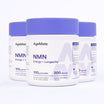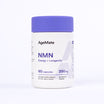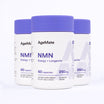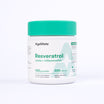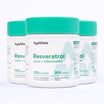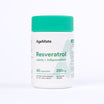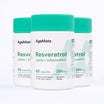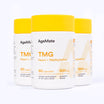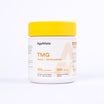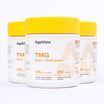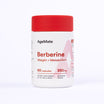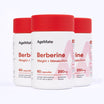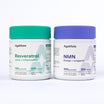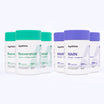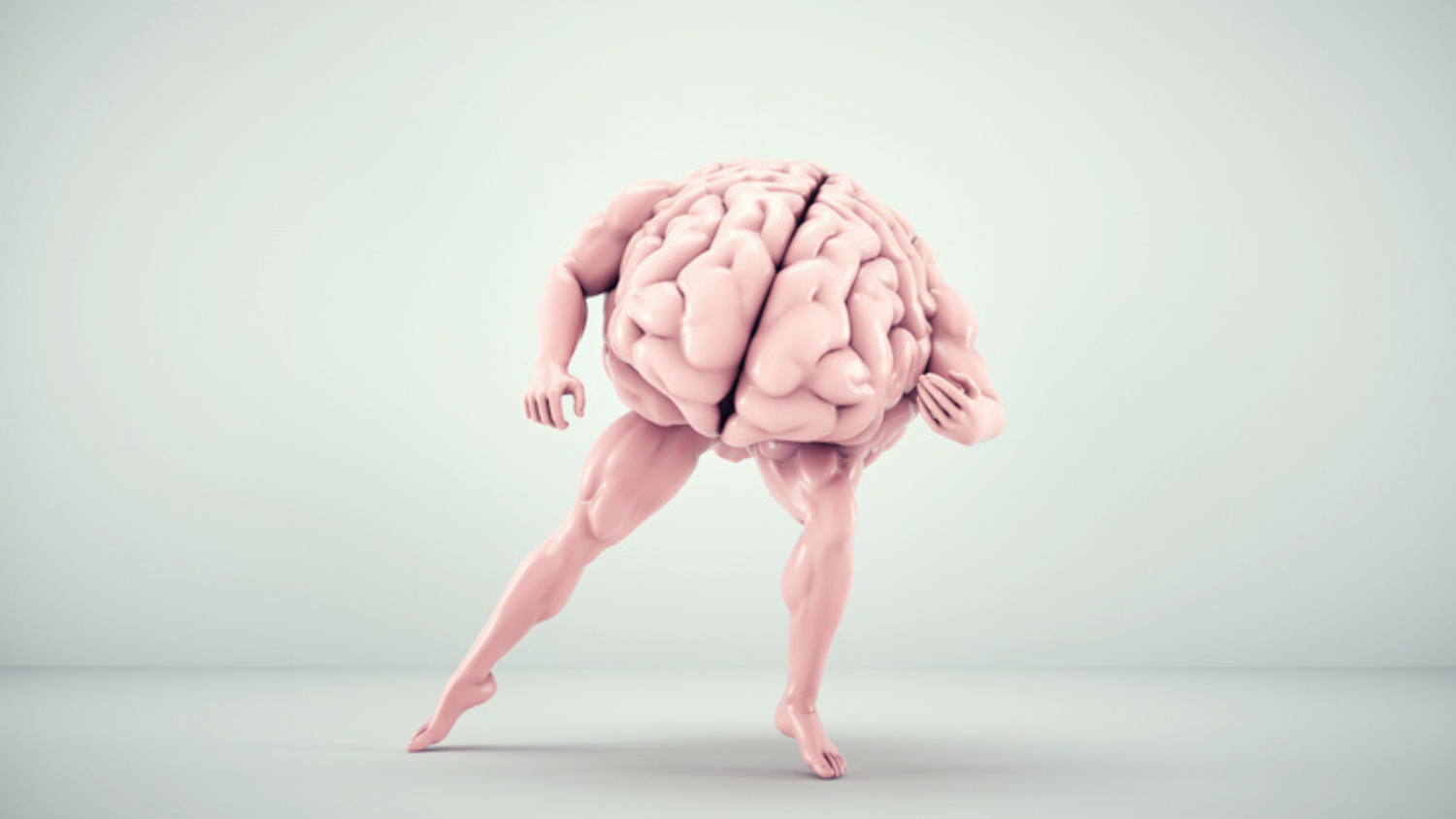Did you know that despite weighing only about 2% of our total body weight, the brain consumes approximately 20% of the body's oxygen and energy resources?
This organ may be relatively small, but its energy demands are significant, highlighting its incredible complexity and importance in maintaining bodily functions and cognitive abilities (R).
What is Brain Health?
The brain serves as the command centre for every action, thought, and emotion. Brain health refers to the overall well-being of this vital organ, encompassing cognitive abilities, emotional balance, and neurological functions.
It involves maintaining the structural integrity of the brain, supporting its cellular health, and preserving mental agility (R).
What Happens if You Don't Keep Your Brain Healthy?
Neglecting brain health can lead to various consequences, including:
Cognitive Decline: Reduced memory, difficulty concentrating, and impaired decision-making are common signs of cognitive decline.
Increased Risk of Neurological Conditions: Poor brain health may elevate the risk of conditions like dementia, Alzheimer’s disease, and other neurodegenerative disorders.
Emotional and Mental Health Challenges: Mental health issues such as anxiety, depression, and mood swings can be exacerbated by neglecting brain health.
How can you keep your brain healthy? From the food you consume to various lifestyle practices, let’s explore how you can nurture your cognitive function (R).
List of Foods to Improve Cognitive Function
Here's a comprehensive list of foods that can enhance cognitive function, along with the nutrients they contain and how these nutrients support brain health:
1. Fatty Fish (Salmon, Mackerel, Trout):
- Nutrients: Omega-3 fatty acids (DHA and EPA)
- How they help: Omega-3 fatty acids are crucial for building brain cell membranes, reducing inflammation, and supporting overall brain health. DHA, in particular, is a major structural component of the brain, enhancing cognitive function and aiding in memory and learning (R).
2. Berries (Blueberries, Strawberries, Blackberries):
- Nutrients: Antioxidants (flavonoids, anthocyanins, vitamin C)
- How they help: Antioxidants combat oxidative stress and inflammation, protecting brain cells from damage and promoting improved communication between brain cells. They are linked to better cognitive performance, delayed aging, and reduced risk of neurodegenerative diseases (R).
3. Leafy Greens (Spinach, Kale, Swiss Chard):
- Nutrients: Vitamin K, folate, beta-carotene, lutein
- How they help: Vitamin K plays a role in forming sphingolipids, a type of fat densely packed into brain cells. Folate aids in mental clarity and slows cognitive decline. Beta-carotene and lutein act as antioxidants, reducing inflammation and promoting brain health (R, R).
4. Nuts and Seeds (Walnuts, Almonds, Flaxseeds):
- Nutrients: Omega-3 fatty acids, antioxidants (vitamin E), folate, and polyphenols
- How they help: Omega-3s support brain structure and function, while antioxidants protect against oxidative stress and inflammation. Folate aids in brain development and cognitive function. Polyphenols help with brain cell communication and promote neuroplasticity (R).
5. Turmeric:
- Nutrients: Curcumin (active compound)
- How it helps: Curcumin, the primary active compound in turmeric, has powerful anti-inflammatory and antioxidant effects. It may enhance memory, improve mood, and protect against age-related cognitive decline by crossing the blood-brain barrier and clearing plaques linked to Alzheimer's (R)
6. Whole Grains (Brown Rice, Quinoa, Oats):
- Nutrients: Fiber, complex carbohydrates, B-vitamins
- How they help: Whole grains provide a steady energy supply to the brain, supporting concentration and cognitive function. B vitamins aid in producing neurotransmitters that influence mood and cognitive processes (R).
7. Avocados:
- Nutrients: Monounsaturated fats, vitamin K, folate, vitamin C, and vitamin E
- How they help: Monounsaturated fats support healthy blood flow, enhancing brain health. Vitamin K contributes to brain health and cognitive function. Vitamins C and E act as antioxidants, protecting the brain from oxidative stress (R).
8. Eggs:
- Nutrients: Choline, lutein, vitamin B12, and folate
- How they help: Choline is essential for producing acetylcholine, a neurotransmitter important for memory and mood regulation. Lutein supports brain health and cognitive function. Vitamin B12 and folate help produce neurotransmitters and prevent cognitive decline (R).
9. Green Tea:
- Nutrients: Catechins, L-theanine, antioxidants (polyphenols)
- How it helps: Catechins and L-theanine have neuroprotective properties, improving cognitive function, enhancing attention, and promoting relaxation without drowsiness. Antioxidants in green tea protect the brain from oxidative stress and may reduce the risk of neurodegenerative diseases (R).
10. Coffee:
- Nutrients: Caffeine, antioxidants (chlorogenic acid)
- How it helps: Caffeine increases alertness, improves mood, and enhances cognitive function by blocking adenosine, a neurotransmitter that promotes sleep. Chlorogenic acid, an antioxidant in coffee, has anti-inflammatory properties beneficial for brain health (R).
11. Dark Chocolate:
- Nutrients: Flavonoids (particularly flavanols), antioxidants
- How it helps: Flavonoids in dark chocolate improve blood flow to the brain, enhancing cognitive function and memory. Antioxidants protect brain cells from oxidative stress and inflammation, supporting overall brain health (R).
Each food contains crucial nutrients to support brain health, improve cognitive function, and potentially reduce the risk of cognitive decline and neurodegenerative diseases. Incorporating a variety of these nutrient-rich foods into your diet can contribute to maintaining a healthy and sharp mind.
Comprehensive List of Supplements for Brain Health
While food will always take centre stage when it comes to providing your body with brain-protective nutrients, supplements can offer a helping hand. Here's a list of supplements known for their potential to improve cognitive function and the mechanisms through which they may work:
1. Omega-3 Fatty Acids (Fish Oil):
Omega-3 fatty acids are essential for brain health, particularly EPA (eicosapentaenoic acid) and DHA (docosahexaenoic acid). They support the structure and function of brain cell membranes, reduce inflammation, and promote synaptic plasticity, which enhances learning and memory (R).
2. Ginkgo Biloba:
Ginkgo biloba contains antioxidants that improve blood circulation and vasodilation, increasing blood flow to the brain. This enhanced blood flow may support cognitive function and memory (R).
3. Bacopa Monnieri:
Bacopa monnieri is an adaptogenic herb that may enhance cognitive function by reducing anxiety and stress. It also increases certain neurotransmitters, such as acetylcholine, which are vital for learning and memory (R).
4. Curcumin (Turmeric):
Curcumin, the active compound in turmeric, has anti-inflammatory and antioxidant properties. It may improve cognitive function by reducing inflammation in the brain and clearing amyloid plaques linked to Alzheimer's disease (R).
5. Phosphatidylserine:
Phosphatidylserine is a phospholipid found in high concentrations in the brain. It plays a role in maintaining cellular structure and facilitating communication between brain cells, potentially improving memory and cognitive function (R).
6. Acetyl-L-Carnitine:
Acetyl-L-carnitine is an amino acid that aids in the production of acetylcholine, a neurotransmitter critical for memory and learning. It may enhance cognitive function by supporting neurotransmitter activity (R).
7. L-Theanine:
L-Theanine, found in green tea, has calming effects and can improve attention and focus. It increases alpha brain waves, promoting relaxation without sedation, and potentially supporting cognitive function (R).
8. Vitamin B Complex (B6, B9, B12):
B vitamins play essential roles in brain health, aiding in the production of neurotransmitters and supporting the nervous system. They may help reduce cognitive decline and support overall cognitive function (R).
9. Lion's Mane Mushroom:
Lion's mane mushroom contains compounds that stimulate nerve growth factor (NGF) production, supporting the growth and maintenance of brain cells. It may enhance cognitive function and protect against age-related cognitive decline (R).
10. Resveratrol:
Resveratrol, found in red grapes and berries, has antioxidant and anti-inflammatory properties. It may protect brain cells from damage and improve cognitive function, especially related to memory (R).
11. NMN (Nicotinamide Mononucleotide):
NMN is a precursor to NAD+ (nicotinamide adenine dinucleotide), a coenzyme involved in cellular energy production. NAD+ supports mitochondrial function and may have neuroprotective effects, potentially enhancing cognitive function and slowing age-related cognitive decline (R).
12. Vitamin E:
Vitamin E is a potent antioxidant that helps protect cell membranes, including those in the brain, from oxidative stress. It may support cognitive function by reducing oxidative damage to brain cells and maintaining their integrity (R).
13. Vitamin D:
Vitamin D receptors are present in the brain, and vitamin D plays a role in neuroprotection, neuroplasticity, and the production of neurotransmitters. Adequate levels of vitamin D may support cognitive function and reduce the risk of cognitive decline (R).
14. Huperzine A:
Huperzine A is a compound derived from a Chinese club moss plant. It acts as an acetylcholinesterase inhibitor, which means it helps increase levels of acetylcholine, a neurotransmitter important for memory and learning. It may support cognitive function by preserving acetylcholine levels in the brain (R).
15. Caffeine:
Caffeine is a central nervous system stimulant that blocks adenosine receptors, leading to increased alertness and improved focus. It may enhance cognitive function, attention, and reaction time, especially in the short term (R).
Remember, while these supplements have shown promising effects on cognitive function in some studies, individual responses may vary. It's essential to consult a healthcare professional before starting any new supplement regimen.
Other Tips to Keep the Brain Healthy
- Regular Exercise: Physical activity improves blood flow to the brain, stimulating the growth of new brain cells and enhancing cognitive function (R).
- Quality Sleep: Aim for sufficient and restorative sleep to support memory consolidation and facilitate brain cell repair and regeneration (R).
- Mental Stimulation: Engaging in mentally challenging activities stimulates neural connections and supports cognitive health (R).
- Social Interaction: Maintaining strong social connections stimulates the brain, reducing the risk of cognitive decline and promoting emotional well-being (R).
- Stress Management: Techniques like mindfulness, meditation, and relaxation exercises help manage stress levels, benefiting brain health (R).
- Continued Learning: Pursuing lifelong learning keeps the brain active and adaptable, promoting cognitive health (R).
Conclusion
Prioritising brain health through a balanced diet rich in brain-boosting foods, regular exercise, mental stimulation, social interaction, stress management, quality sleep, and lifelong learning is crucial for maintaining cognitive function and overall well-being.
By nurturing your brain, you empower yourself to lead a vibrant, fulfilling life with sharper mental acuity and resilience.



